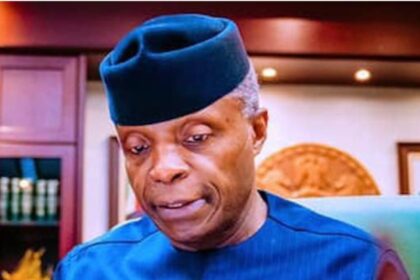•EFCC tells court PDP chief regretted he revealed too much
The Economic and Financial Crimes Commission (EFCC) yesterday demonstrated to the High Court of the Federal Capital Territory (FCT) how the spokesman of the Peoples Democratic Party (PDP), Olisa Metuh, tore the statement he made to investigators, and gave reasons why he attempted to destroy the statement.
The EFCC, at the commencement of Metuh’s trial before Justice Ishaq Bello, said the PDP chieftain tore the statement on realising that he made reference to ex-President Goodluck Jonathan and had implicated himself by admitting that he received money from the Office of the National Security Adviser (ONSA).
Metuh is facing a three-count charge of destroying his statement and obstructing investigation.
The first prosecution witness, Junaid Said, who was led in evidence by prosecution lawyer, Sylvanus Tahir, said he took statement from Metuh, who, he said, later tore a sheet of the four-page statement.
He said: “My Lord, when he concluded writing his statement, which was on four sheets of the EFCC statement form, I collected the statement and read over it, I then handed the statement over to my superiors Musa and Wetkas. When I was handing over the statement, the defendant said he was surprised that he had written that much and that he felt he had given too much information.
“Because of the comment, I was worried I gave him the statement sheets one after the other for endorsement. He endorsed the first and second sheet, but tore the third sheet. The third sheet was where the defendant (Metuh) disclosed that he received the money for PDP political activities, settled his personal needs and made reference to former President Goodluck Jonathan.
“My lord, he suddenly tore the statement sheet into pieces. In great shock and surprise, I stood up I asked him why he did what he did. He said he did that because he was no longer willing to give the information on that statement sheet.
“I then requested the pieces of the statement, he declined and attempted to put them in his pocket, I then cautioned him and told him to respect himself. He insisted that he was going to dispose the torn sheet.
“I persuaded him to handover the torn sheet and brought one plain paper to him. He poured the pieces on the plain sheet. My colleagues were there looking at us in surprise as well. He further tore them into pieces, saying only in the movies would they be recovered.
“I poured the pieces in the commission’s transparent polythene bag as exhibit and made entry of the incident into the EFCC’s incident duty station diary as well as EFCC’s pocket notebook. Later, in the day he requested to make additional statement, which he made, wrote his name and signed but declined to make any other statement on the torn paper.’’
The EFCC’s incident duty station diary, EFCC’s pocket notebook and pieces of the torn statement were tendered and admitted as exhibits.
The witness, under cross examination by Metuh’s lawyer, Onyechi Ikpeazu (SAN) admitted not including the issue of the torn sheet in his statement.
When Ikpeazu requested for the original copy of the statement, Tahir gave him a photocopy of the statement. He said that the defence should had served him with notice to produce the document.
Justice Bello said it would be difficult to proceed without the original copy of the witness statement.
“Documents must meet the status as required by the law; there must be a certified copy of your documents. It is a healthy practice to produce the documents in your custody, especially in a criminal trial,’’ the judge said. He adjourned further hearing to March 16.
Earlier, Metuh was rearraigned on an amended charge, which now includes a third count. Tahir said the third count of “mischief” contravened Section 326 punishable under Section 327 of the Penal Code.



